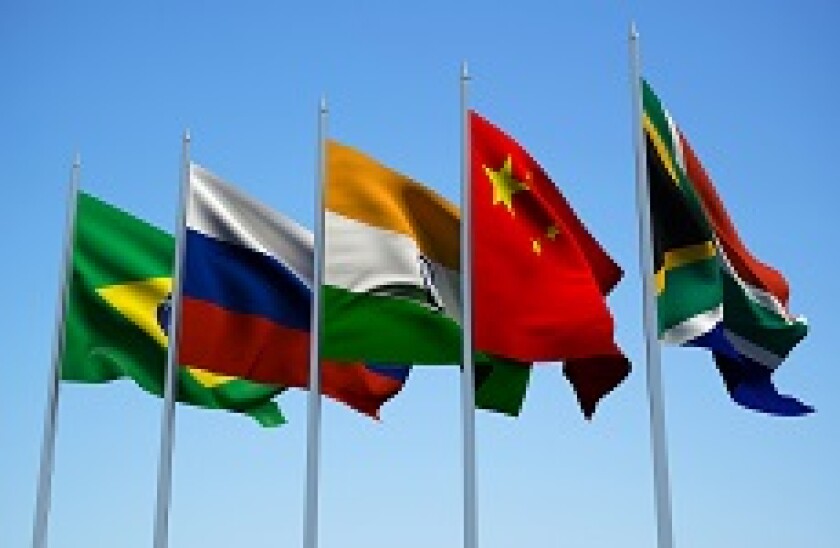Brazil, Russia, India and South Africa must unite with China to reject protectionist trade policies, Xi Jinping, the Chinese president, told leaders of the BRICS countries at a July 25 meeting in Johannesburg.
“We BRICS countries should firmly promote an open world economy, be resolute in rejecting unilateralism and protectionism, promote trade and investment liberalisation and facilitation, and jointly steer the global economy toward greater openness, inclusiveness, balanced growth and win-win outcomes for all,” said Xi.
But China’s attempt to champion the existing trade system, however, was challenged by Dennis Shea, US ambassador to the World Trade Organization, just one day after Xi’s rallying cry in South Africa.
“Despite China’s repeated portrayal of itself as a staunch defender of free trade and the global trading system, China is in fact the most protectionist, mercantilist economy in the world,” Shea was quoted by media as saying. “For China, economic reform means perfecting the government’s and the Communist Party’s management of the economy and strengthening the state sector, particularly state-owned enterprises.”
China will maintain an adequate level of liquidity and carry out a more proactive fiscal policy, officials at the State Council said at a July 23 meeting, which was chaired by Li Keqiang.
Officials said liquidity injections will be targeted, noting that the government will guide financial institutions to use the capital released from the reserve requirement ratio (RRR) cuts to support small and micro enterprises, help these businesses issue bonds, and encourage debt-equity-swap.
This is a formal confirmation of a shift towards an easing in monetary policy, Zhiwei Zhang, chief economist at Deutsche Bank, wrote in a July 23 memo.
“The change of monetary stance has already happened in Q2 with RRR cut and injection of liquidity through medium-term lending facility (MLF),” said Zhang. “The new message from the meeting today is that fiscal policy will become incrementally more expansionary.”
The People’s Bank of China has cut the RRR twice this year , and has allowed commercial banks to borrow from MLF using lower rated corporate bonds as collaterals. Local media claimed last week that the PBoC was prepared to lend more to banks that are willing to finance weaker borrowers.
Despite these policy moves, Song Yu, chief China economist at Beijing Gao Hua Securities, argued that the government will avoid a mass stimulus.
“We note that policymakers have been loosening policy gradually since April and only when the loosening is seen as insufficient do they take additional measures,” he wrote in a July 24 report. “We expect this to remain the strategy going forward.”
The State Council’s announcement came after a public spat last week between the PBoC and Ministry of Finance over whether fiscal or monetary policy would be needed to boost a flagging economy. PBoC officials had said they expected MoF to take the charge on boosting the economy through fiscal stimulus, with the latest announcement seemingly asserting PBoC’s authority in setting the agenda.
China will consider normalising the trading of stock index futures to fulfil the domestic and foreign investors’ demand for risk management, Fang Xinghai, vice chairman of the China Securities Regulatory Commission, said in a July 23 speech.
China imposed restrictions on the trading of stock index futures after the 2015 stock market rout. The country began rolling back the red tape on the product earlier this year, according to state media.
The CSRC will also enrich the variety of Chinese government bond futures, and encouraging commercial banks to trade these futures, said Fang. The regulator’s comment came a week after the China Financial Futures Exchange (CFFEX) began a consultation on introducing two-year CGB futures.
Liu He, vice premier and a top economic advisor to Xi, has been appointed the head of the Leading Group for State-Owned Enterprises Reform, the State Council said in a July 26 statement. Wang Yong, a state councilor , is the deputy head of the group.

